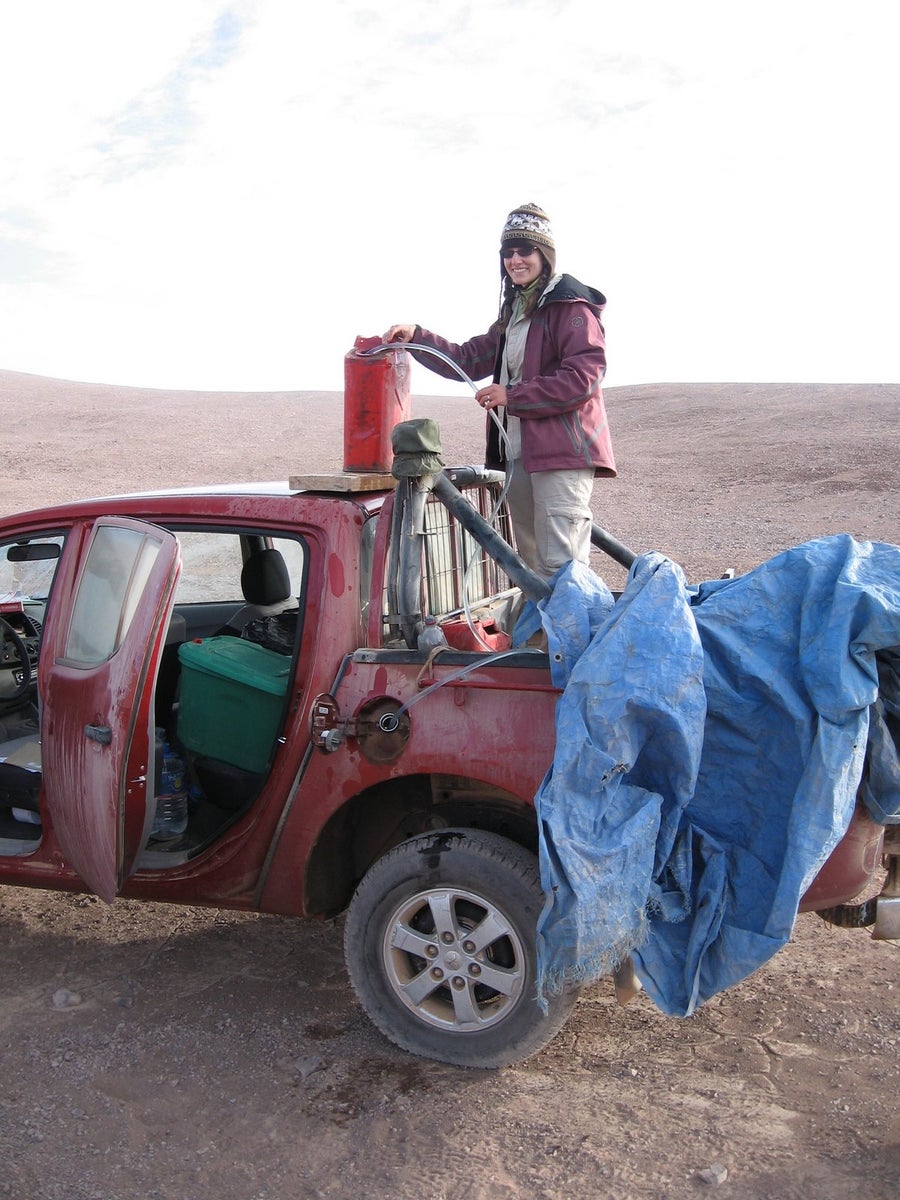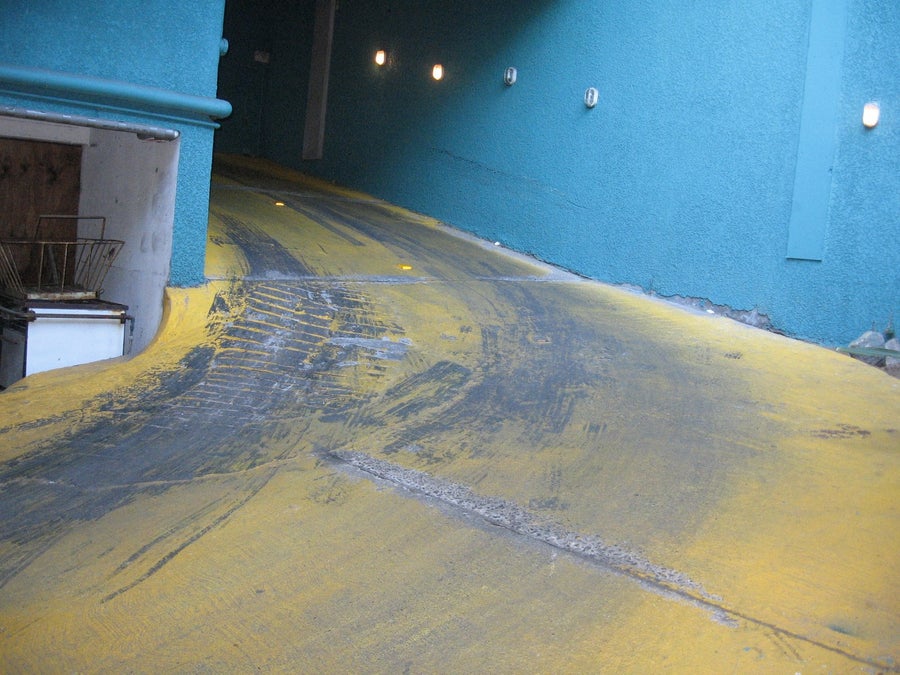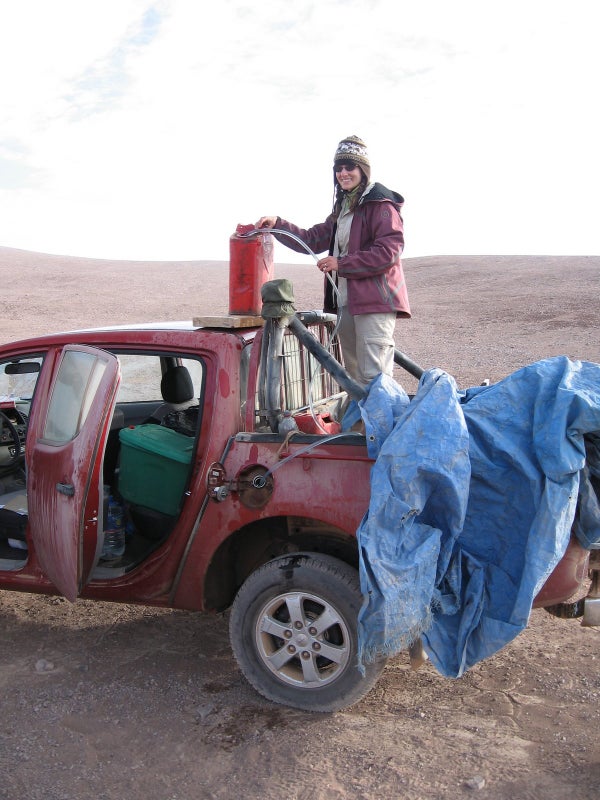This article was published in Scientific American’s former blog network and reflects the views of the author, not necessarily those of Scientific American

Credit: Amanda Baker
If you ask a kid what skills a scientist needs, they might mention math or chemistry. Maybe they will get really creative and mention digging up bones. But many of the skills that scientists end up needing for their work can be a bit surprising – even to the scientist. While time at the bench or on a computer often plays a significant role in research life, preparing kids for a life in STEM often means being willing to take on the challenge of learning just about anything. Just a few examples include:
Off-roading with a truck: In addition to taking linear algebra and geophysics classes, my own research path included learning to drive a stick shift through desert landscapes topped with five inches of dust. Developing these skills came with the associated bonus experiences of siphoning fuel out of a gas can with a tube and empty 2-liter bottle, interpreting foreign road signs on the fly, getting a truck filled with gear up the tightest vehicle ramp ever seen (below), and learning that rental policies exist that cover everything except a rolled vehicle.
On supporting science journalism
If you're enjoying this article, consider supporting our award-winning journalism by subscribing. By purchasing a subscription you are helping to ensure the future of impactful stories about the discoveries and ideas shaping our world today.

Ramp to parking under the Hotel Barros Arana in Iquique, Chile.
Credit: Amanda Baker
Foreign languages: A life in research has many paths that can lead away from your native tongue. Sometimes there are not translated versions of the texts, maps, or transcripts that you need and you end up developing an odd friendship with the one person on campus who speaks Croatian. If your work takes you to another country, you may end up learning enough of the language to navigate customs check points, talk to local business owners, or rent hotels and vehicles. Such skills also go a very long way when your vehicle dies hundreds of miles from the nearest city along an abandoned mine road (shout out to Miguel for rescuing me and my field assistant nine years ago in his semi).
International travel: Trips abroad are hardly limited to scientists who do field work, with conferences taking place anywhere from Tallahassee to Tokyo. Researchers may have to learn how to plan international travel, read new types of public transportation schedules, and recognize when the ferry they got on is going the wrong way around an island (shout out to my husband). You may also learn that in some countries a restaurant opening at 8pm might mean that the doors open around 8:30 and no food will be served until at least 9:30.
Using outdated technology: Sometimes the information you need has been built or stored in a format that is no longer easy to search or access. That may mean learning how to use a microfiche machine to find the information by hand. It may mean learning a programming language that no one has used in 15 years to understand and adapt important pieces of code. It may also mean hiring art historians, flying to Cambridge, and learning how to handle half-century-old film containing geophysics data to digitize it for new analysis (shout out to my brother).
Hiring people: From graduate students to field assistants to art historians, finding and hiring a good team is critical to getting research done. The value of writing a meaningful job posting and having an honest interview become apparent very quickly. And hiring someone who will be your student for the next five years is very different than hiring the person you trust to spend two months alone with you in the desert when your truck might die and you have to get rescued by a man named Miguel (shout out to my two amazing field assistants).
The list can go on – from giving presentations in front of crowded rooms to doing unsettling things to mice – but it is clear that a life in research does not just look like someone in a lab coat swishing beakers or sitting behind a desk and doing math. The programming and data-processing parts are there too, but a good researcher has to be open to learning the skills that will help them reach their goal, regardless of how unexpected they may be.
